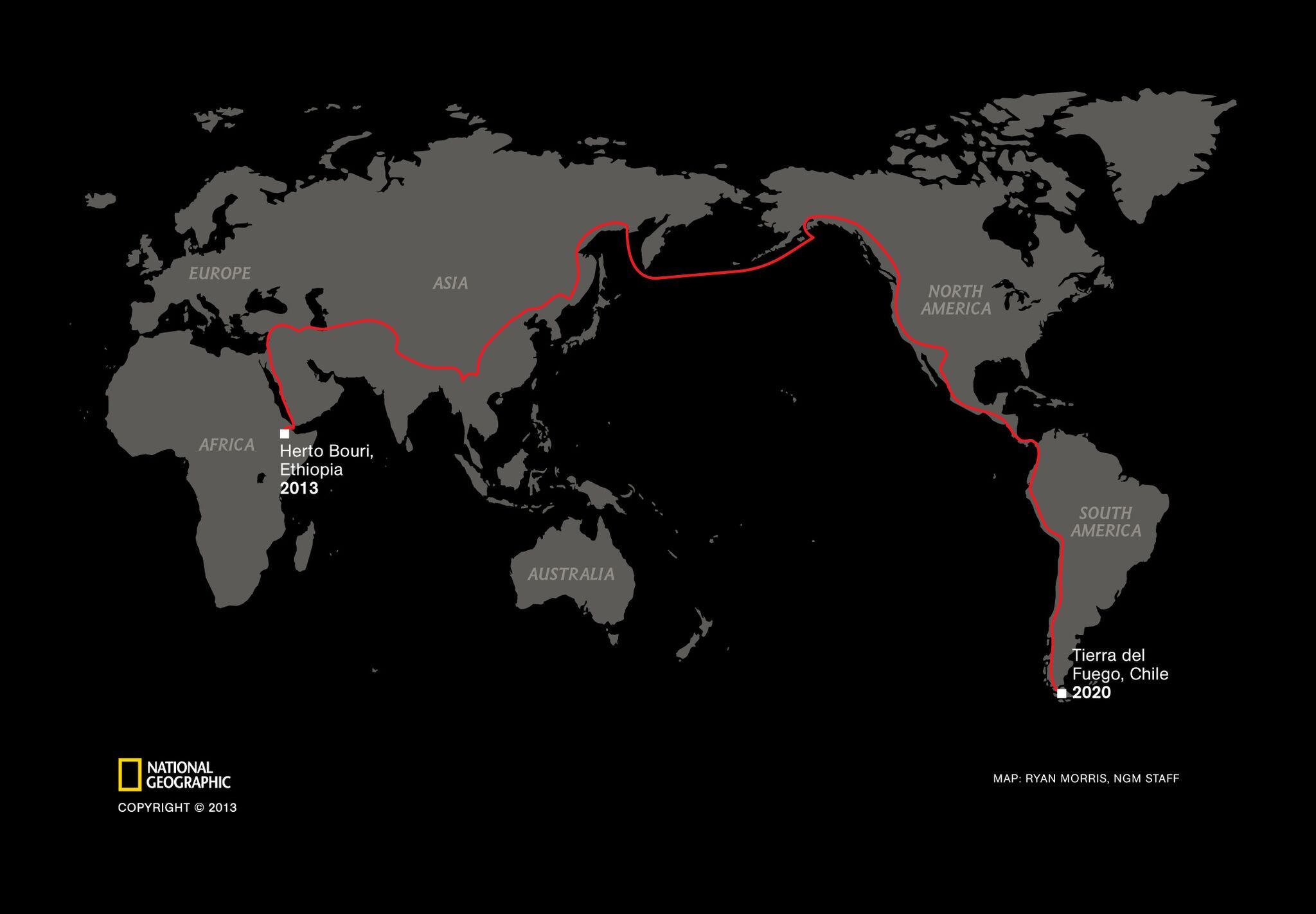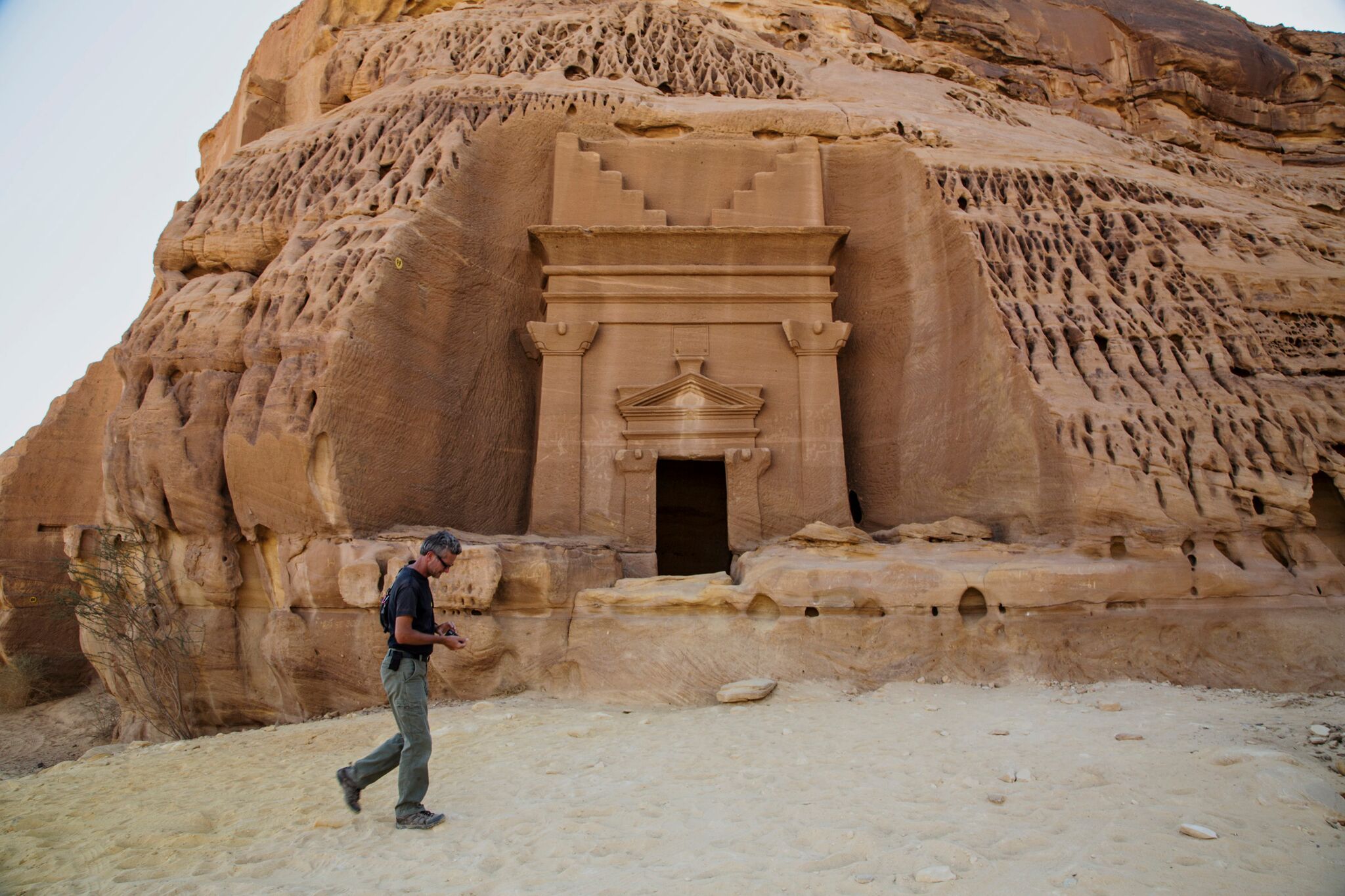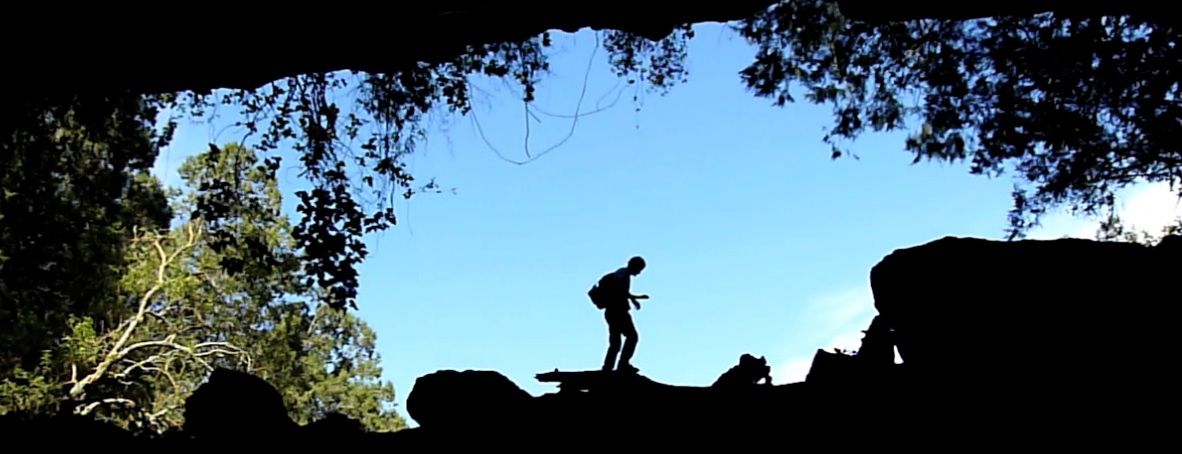2016 Out of Eden Walk Essay Contest for Scouts Attending Philmont Scout Ranch
In early 2013, two-time Pulitzer Prize-winning journalist and National Geographic Fellow Paul Salopek embarked on a reporting mission to walk the same 21,000 mile path that modern humans took from Africa to South America over the course of roughly 50,000 years. The project is called the Out of Eden walk, and Paul’s goal throughout is to take a slow approach to reporting that allows readers to reflect on how the small things we notice as we walk through the world reveal larger international issues. Drawing inspiration from Paul’s Out of Eden Walk, one scout from each crew coming to Philmont in 2016 is invited to submit an essay exploring how walking slowly through a place, and observing it closely, leads to a larger understanding of the world. The winner will travel to Central Asia for an unforgettable two-day hike with Paul Salopek at the end of the summer (specific dates to be arranged at a time mutually compatible with the winner and Paul Salopek)
Essays should not exceed 500 words and must be submitted using the link below by 11:59 PM ET on June 1, 2016.
Essay Topic:
What do you notice about a place when you slow down? What do you see, hear, smell, feel? What do those things make you think about? How do they connect to our larger world? And how is it different from motorized travel?
Using Paul Salopek’s Out of Eden Walk as inspiration, take a hike somewhere in your community and note what you observe. Slow down, take notes, and think about what you see with clear focus and curiosity. Then, ask yourself how what you see and experience connects to your larger community. Reflect on how the things you notice while you walk connect to larger themes in the world. (This could include anything from the environment to human relations, from migration and technology to questions of economics, culture or health.) Finally, use your experience on the hike as research for an essay that addresses the following:
Why is it important to slow down and be more observant? What do you learn about a place, and ultimately about the world, by slowing down to a walking pace?
Steps:
- Watch the introductory video: https://www.youtube.com/watch?v=5mzDhqvQPqg
- Read the first National Geographic cover story from the project. It is included as Resource 1 above, and the direct link is here: http://ngm.nationalgeographic.com/2013/12/out-of-eden/salopek-text). Salopek's other print stories from National Geographic are also included in the Resources section and can be read for further context.
- Read the milestone description: http://www.outofedenwalk.com/milestones/ and then read the following milestones, noting how Paul engages all senses to notice a place slowly. Use the descriptions to identify connections Paul makes between what he sees and larger issues in the world:
- Milestone 1 Herto Bouri: http://www.outofedenwalk.com/gallery/2013/01/milestone-1-herto-bouri/
- Milestone 13 Bedouin Country: http://www.outofedenwalk.com/gallery/2013/09/milestone-13-bedouin-country/
- Milestone 15 Shoreline: http://www.outofedenwalk.com/gallery/2013/10/milestone-15-shoreline/
- Milestone 18 Displaced: http://www.outofedenwalk.com/gallery/2014/01/milestone-18-displaced/
- Milestone 25 "Flocks": http://www.outofedenwalk.com/gallery/2014/10/milestone-25-flocks/
- Milestone 29 "Crossroads": http://www.outofedenwalk.com/gallery/2015/10/milestone-29-crossroads/ (Watch this video for a more detailed report on this milestone from PBS Newshour: http://pulitzercenter.org/reporting/journalist-goes-walk-around-world-find-story-humanity
- Watch the storytelling video: https://www.youtube.com/watch?v=hfnVuLLK5V0
- Take at least two hikes, practicing the observation techniques Paul explains in the materials above.
- Record at least two written milestones on your hikes. You will be submitting only written milestones for this contest, not photographs, video or audio.
- After you have viewed and read the resources and taken your hikes, write your essay. Please pay careful attention to the requirements below.
Essay Requirements:
- Essays should not exceed 500 words in length and should include:
- An introduction responding to the essay topic above and explain why you think a “slow journalism” approach is useful and important. (Suggested length: 100-200 words)
- Two milestones, modeled from those in the Out of Eden Walk, taken from your hikes. (Suggested length: 50-100 words per milestone)
- A closing reflection on how the milestones you have observed on your hikes reflect larger challenges in your community and in the world. (Suggested length: 50-100 words)
- Essays must submitted using the application link below.
- Essays should be typed into the field within the application, but it is recommended that applicants write and save a draft of their essay before pasting it in the application field.
- Submissions must be original, unpublished work, begin with a title and address the essay topic using examples from a hike the writer took.
- Essays should be thoughtfully written with a clear structure and rich details. Evaluators will also be looking for essays without grammar or spelling errors.
- Essays must be submitted by 11:59 PM on June 1, 2016.
- Only one essay may be submitted from a crew of scouts.
Essays will not be considered if they are submitted after the deadline or do not meet the requirements above.
How to submit your essay:
Click on the link below to fill out the application and submit your essay.
Winners will be announced in early June.
Questions:
Contact [email protected] with questions.
This page explains the Out of Eden Walk essay contest for boy scouts attending the Philmont Scout Ranch this summer. The contest draws inspiration from journalist Paul Salopek's Out of Eden Walk.









